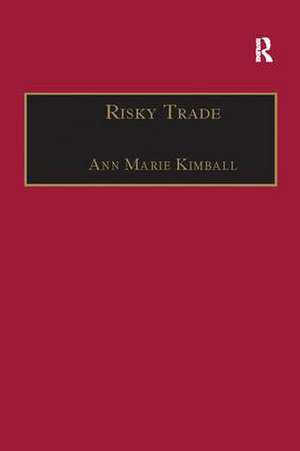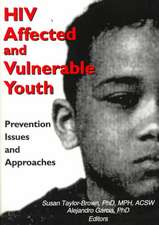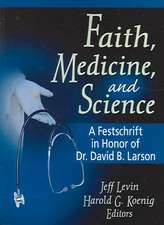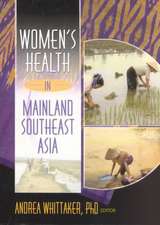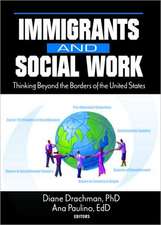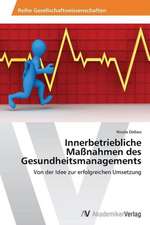Risky Trade: Infectious Disease in the Era of Global Trade
Autor Ann Marie Kimballen Limba Engleză Paperback – 25 mai 2017
| Toate formatele și edițiile | Preț | Express |
|---|---|---|
| Paperback (1) | 446.13 lei 6-8 săpt. | |
| Taylor & Francis – 25 mai 2017 | 446.13 lei 6-8 săpt. | |
| Hardback (1) | 993.69 lei 6-8 săpt. | |
| Taylor & Francis – 19 mai 2006 | 993.69 lei 6-8 săpt. |
Preț: 446.13 lei
Nou
Puncte Express: 669
Preț estimativ în valută:
85.44€ • 87.18$ • 71.88£
85.44€ • 87.18$ • 71.88£
Carte tipărită la comandă
Livrare economică 25 februarie-11 martie
Preluare comenzi: 021 569.72.76
Specificații
ISBN-13: 9781138095991
ISBN-10: 1138095990
Pagini: 230
Dimensiuni: 156 x 234 x 12 mm
Greutate: 0.45 kg
Ediția:1
Editura: Taylor & Francis
Colecția Routledge
Locul publicării:Oxford, United Kingdom
ISBN-10: 1138095990
Pagini: 230
Dimensiuni: 156 x 234 x 12 mm
Greutate: 0.45 kg
Ediția:1
Editura: Taylor & Francis
Colecția Routledge
Locul publicării:Oxford, United Kingdom
Notă biografică
Dr Kimball is Professor of Epidemiology and Health Services at the University of Washington School of Public Health and Community Medicine, and Director of the APEC Asia Pacific Emerging Infections Network. She is an Adjunct Professor in Medicine with the School of Medicine and she is an attending Physician on staff at Harborview Medical Center. Her research interests are in emerging infections and global epidemic, prevention, surveillance, investigation and control of infectious diseases. In 2000 she was named as a New Century Scholar for Fulbright, and in 2004 she received a Guggenheim Foundation scholar award for her work. She has worked extensively in the areas of trade policy and disease control, and telecommunications and disease surveillance and alert systems. Formerly Dr Kimball served as Regional Advisor, and Head of National Program Support for HIV/AIDS with the Pan American Health Organization (WHO). She has also served as Director of the Washington State HIV/AIDS/STD Program with the State Department of Health, and as Chair of the National Alliance of State and Territorial AIDS Directors in the United States.
Cuprins
Chapter 1 The Global Express; Chapter 2 Elusive Enterics; Chapter 3 New Agents with Speed; Chapter 4 Stealth Agents – Slow and Deadly; Chapter 5 The Global Express and Intentional Harm; Chapter 6 Primary Prevention; Chapter 7 Technical Armor; Chapter 8 Preventing Global Outbreaks; Chapter 9 The Future of the Global Express: Promise or Peril for People?;
Recenzii
'...a must-read for policy makers in health and trade, and for captains of industry who want to keep their ships sailing smoothly in a world where infectious diseases are easily transported across international borders by humans, insects, agricultural products and livestock.’ David L. Heymann, MD, Executive Director, Communicable Diseases, World Health Organization
'At a time when world leaders are increasingly aware of public health's importance to security, economics, development and human dignity, Professor Kimball’s Risky Trade: Infectious Disease in the Era of Global Trade illuminates with a master's touch the complexities of what is a defining 21st-century challenge - managing globalization’s acceleration of the age-old struggle between people and pathogens.’ David P. Fidler, Indiana University, Bloomington, USA
'...[a] frightening and fascinating book...all the more scary because it is so coolly argued. Scholarly and accessible, Ann Marie Kimball’s text is rational but far from dispassionate, arguing that intensive global co-operation is needed to prevent and manage a situation that is spiralling out of control.’ Nursing Standard
'This volume addresses an important issue...the author is congratulated on producing a thoughtful, insightful book that fills a real gap in the literature. Perhaps most importantly, the book is very readable...this book should be of interest to all those concerned with the future of global health, and those interested in economic structures that influence microbial traffic.’ Journal of Biosocial Science
'...a timely reminder to governments and public health workers that the world-wide ecological changes taking place as a result of rapid urbanization, new agricultural policies and deforestation are driving animal microbes to new hosts in humans.’ Journal of the Royal Society for the Promotion of Health
'At a time when world leaders are increasingly aware of public health's importance to security, economics, development and human dignity, Professor Kimball’s Risky Trade: Infectious Disease in the Era of Global Trade illuminates with a master's touch the complexities of what is a defining 21st-century challenge - managing globalization’s acceleration of the age-old struggle between people and pathogens.’ David P. Fidler, Indiana University, Bloomington, USA
'...[a] frightening and fascinating book...all the more scary because it is so coolly argued. Scholarly and accessible, Ann Marie Kimball’s text is rational but far from dispassionate, arguing that intensive global co-operation is needed to prevent and manage a situation that is spiralling out of control.’ Nursing Standard
'This volume addresses an important issue...the author is congratulated on producing a thoughtful, insightful book that fills a real gap in the literature. Perhaps most importantly, the book is very readable...this book should be of interest to all those concerned with the future of global health, and those interested in economic structures that influence microbial traffic.’ Journal of Biosocial Science
'...a timely reminder to governments and public health workers that the world-wide ecological changes taking place as a result of rapid urbanization, new agricultural policies and deforestation are driving animal microbes to new hosts in humans.’ Journal of the Royal Society for the Promotion of Health
Descriere
This book examines the risks of epidemic disease posed by the modern era of accelerated global trade. Conversely, it also addresses some of the potential benefits the same globalization can bring to epidemic control through surveillance, diagnostics, treatment, and investigation. The empirical approach ties together existing descriptions and case studies of epidemics building a comprehensive framework for examining new events and considering historical experience with infectious outbreaks. Thus the work helps demythologize some of the scare stories associated with global trade such as nvCJD and puts them into their proper scientific context.
